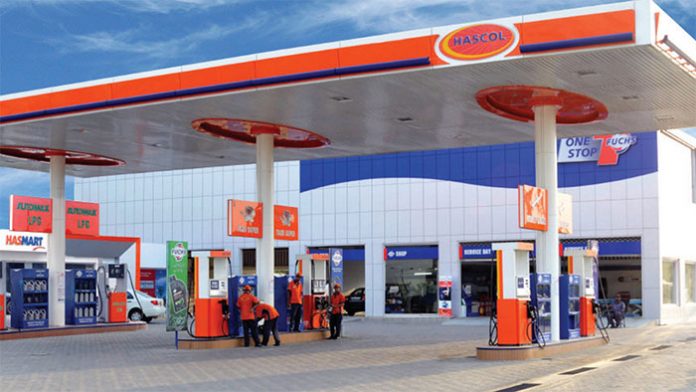KARACHI: In the latest turn of events, Hascol in a recent disclosure of material information has announced that the board of directors have approved the plan for “rehabilitation of the company through restructuring and settlement of the liabilities of the Company”, Profit learnt on Thursday.
Additionally a draft letter approved by the board of directors would also be sent to all of the company’s “secured creditors/banks/financial institutions”. The letter would highlight the plan and process the company intends to follow in line with the “rehabilitation plan”.
This comes on the back of the recently published financial results for the previous year. According to the company’s press release, “the company managed to earn a positive EBITDA (Earnings Before Interest, Taxes, Depreciation, and Amortization) of PKR 1.354 billion compared to the previous year’s negative EBITDA of PKR 11.771 billion”
Although looking at the EBITDA figures in an isolated fashion might inspire confidence, the company is not yet completely out of the woods. As per the recently published financial results of the company the bottom line loss has improved significantly, compared from the loss of Rs 23.5 billion in 2020 the company in 2021 only posted a loss of Rs 7.6 billion.
Viewing the recent increase in margins in the sector, companies have been emboldened to ramp up their operations. This has also been the case with Hascol, as it stated, “the company has been encouraged by some recent decision made by the government of Pakistan”.
This can be considered a remarkable achievement given the challenges faced by the whole industry. What makes it even more impressive is the fact that the company was being scrutinised and lacked the ability to get credit facilities. Hascol’s biggest shareholder Vitol has borne the brunt of supporting operations and credit facilities of the company, this however might change with the new strategy.
On March 28, 2001, Hascol Petroleum Limited was established in Pakistan as a private limited company. The Corporation changed its status to that of a public unlisted company on September 12, 2007.
The Company purchases, stores, and markets items connected to petroleum, chemicals, LPG, and other associated industries. In 2005, the firm received an oil marketing licence from the Ministry of Petroleum and Natural Resources, and in 2018, it bought the assets of a company with an LPG licence. Between 2010 and 2018, Hascol saw its topline surge by an astounding 52.7% per annum, from Rs7.9 billion to Rs234 billion.
However its glory was short lived, cutting the long story short the company was alleged to have been involved in an elaborate scam by syphoning off billions from banks through fraudulent means. The National Bank of Pakistan had the highest exposure in terms of credit facilities, therefore when the company defaulted on its liabilities the Federal Investigation Agency got involved.
The investigation revealed that the suspects acquired a loan from the National Bank of Pakistan worth about Rs 54 billion while working together to launder money through financial fraud. The scam was carried out by Hascol in collusion with the NBP’s senior management and that of other commercial banks, according to the head of the FIA Sindh, and was dubbed by him as “the country’s biggest financial fraud”.





Mr Arif Usmani ex president was involved in this scame with his other members of his senior managment includin Mr Rehmmat Ali Hasnie and others.The Chairman Board of Directors and other members of Boad of Directors are also involved.Deep Investigation is required.